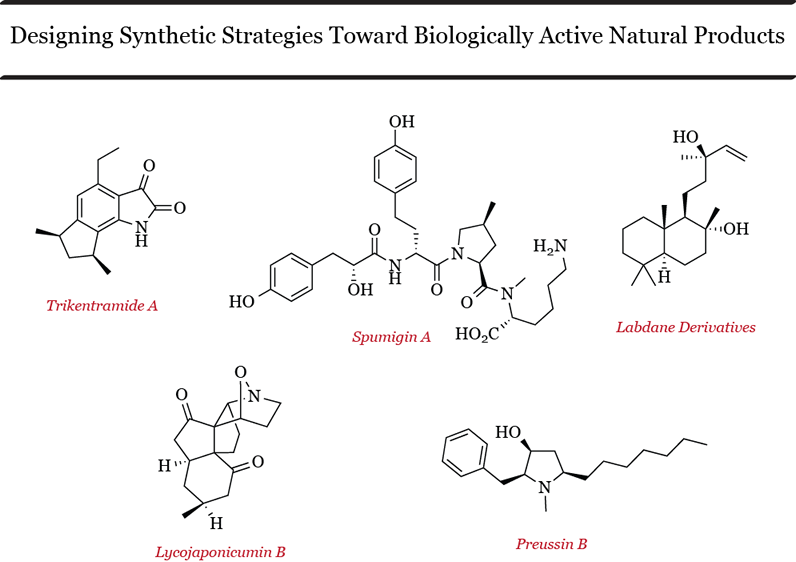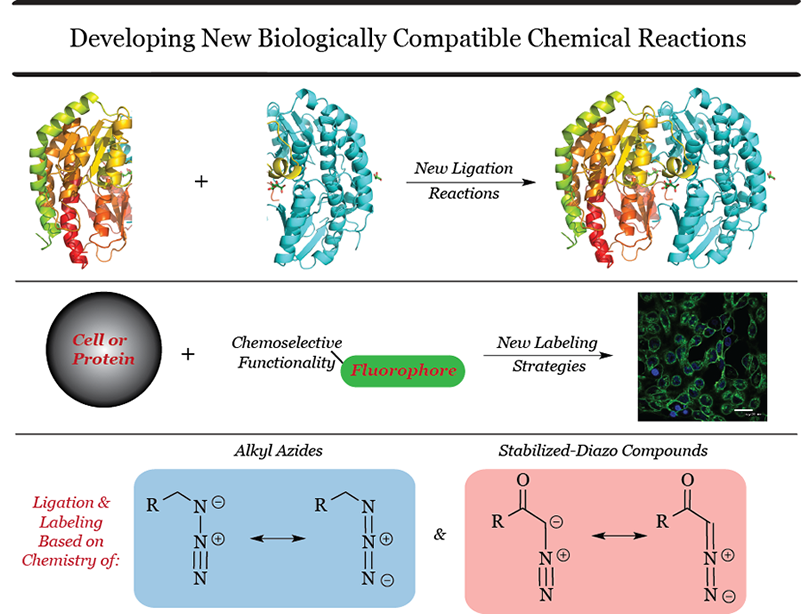
Synthetic organic chemists are capable of constructing some of the most complex and intriguing molecules that mother nature has been able to come up with. These molecules, along with countless variations of them, have been utilized medicinally as biological tools and drug candidates for clinical development. One of the aims of research in the McGrath group is to design and carry out synthetic routes toward these exciting naturally occuring molecules. Additionally, research in synthetic organic chemistry provides students with a diverse set of skills that will prove to be useful regardless of their career path.

The direct manipulation of biomolecules by chemical methods enables investigation of a great breadth of scientific questions, many of which are not accessible using traditional biochemical or genetic methods. For example, sugars, lipids, post-translational modifications, and small non-natural tags for labeling or imaging cannot be manipulated using genetic methods alone. Developing chemistry to selectively modify biomolecules in an aqueous environment ("bioorthogonal chemistry") is challenging; reactions must be non-toxic, selective, and proceed rapidly, among other application-dependent criteria. Research in the McGrath group is broadly focused on developing novel chemical reactions with azide and diazo compounds for attaching labels to biological molecules to investigate a myriad of cellular processes.